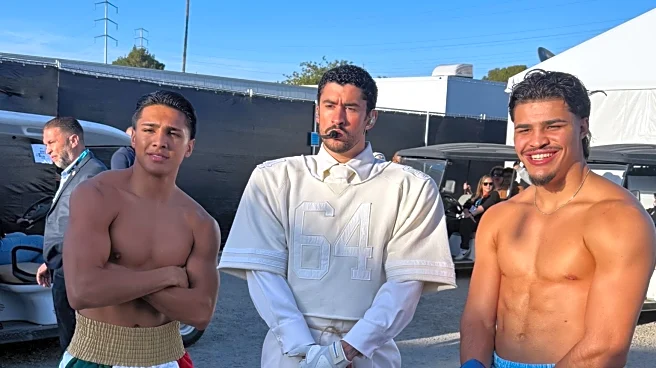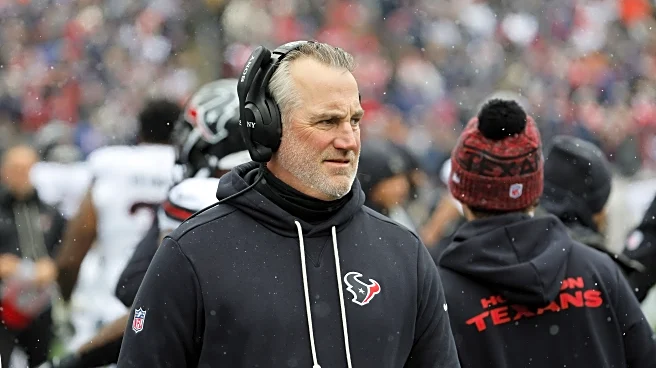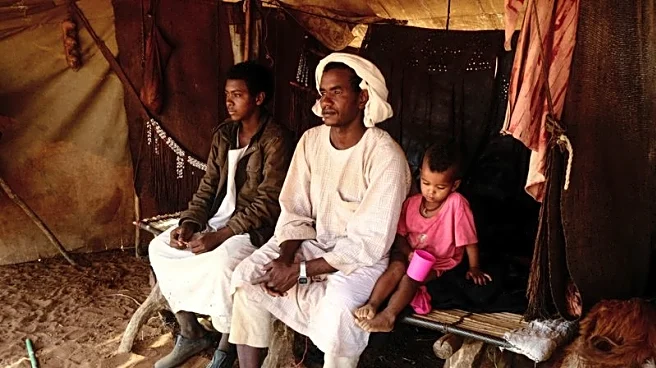Rapid Read • 8 min read
Daytime talk shows have become a staple of modern television, evolving into two primary formats: issue-oriented and celebrity-oriented. The issue-oriented format, pioneered by Phil Donahue in 1979, focuses on personal stories and social issues, with hosts like Oprah Winfrey achieving national prominence. Celebrity-oriented talk shows, similar to their nighttime counterparts, feature hosts performing monologues and interacting with celebrity guests. These shows have roots in comedy-variety series and were popularized by figures like Merv Griffin and Rosie O'Donnell. The genre has seen significant success, with shows like 'The Jerry Springer Show' pushing boundaries with confrontational content.
AD
Daytime talk shows have played a crucial role in shaping public discourse and entertainment. They provide a platform for marginalized voices and address pressing societal issues, influencing cultural norms and public opinion. The success of hosts like Oprah Winfrey has demonstrated the power of television to connect with audiences and drive social change. These shows also offer economic benefits to networks due to their low production costs and high ratings. However, the sensational nature of some programs, like 'The Jerry Springer Show,' has sparked debates about the ethical implications of exploiting personal drama for entertainment.
The future of daytime talk shows may involve further diversification of content and formats to adapt to changing viewer preferences and media landscapes. As digital platforms continue to grow, talk shows might expand their reach through online streaming and social media engagement. Networks may also explore new ways to balance entertainment with responsible storytelling, ensuring that the genre remains relevant and impactful. The ongoing evolution of talk shows will likely reflect broader trends in television and media consumption.
Daytime talk shows have contributed to the democratization of media by giving ordinary people a voice on national platforms. This has raised questions about the representation of diverse perspectives and the potential for media to influence societal attitudes. The genre's reliance on unpredictability and emotional engagement highlights the complex relationship between entertainment and reality, prompting discussions about the ethical responsibilities of broadcasters.
AD
More Stories You Might Enjoy












